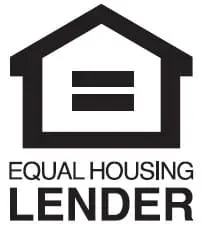Published March 19, 2019 • 6 Min Read
Owning a vacation home in the U.S. has definite perks if you’re looking for a warm weather getaway to enjoy with your family, or you’re planning on a snowbird retirement. But when you’re back at home, how can you make your U.S. property work for you?
Renting it out, either for the short- or long-term, is a great option – doing it right takes research and planning.
Know the Pros and Cons
First, consider what you stand to gain by renting out your vacation home — and the potential downsides.
On the pro side:
-
Renting can generate an additional income stream.
-
Rental payments in U.S. dollars provide cash flow for U.S. expenses without converting money.
-
Renting may yield tax benefits for deductible expenses.
There may be some cons, however:
-
Finding renters can be time-consuming.
-
You only make money when the house is rented.
-
Damage from renters could reduce your home’s value.
-
Unexpected repair costs could eat into your rental income.
-
Rental payments are taxable income.
Renting the home also means you have to be more careful about your own vacation plans. You couldn’t plan a spur-of-the-moment trip, for example, if the home is already rented for the weekend.
Choose an Appropriate Rental Rate
Renting a vacation home comes down to numbers — you want to charge enough to make renting profitable but you don’t want to alienate would-be renters by pricing the property too high.
Nailing down the rental rate can be tricky with a U.S.-based home if you’re not familiar with the local vacation rental market. There are two ways you can approach the challenge:
-
Check out rental sites like Airbnb, VRBO and HomeAway to compare rental rates for home listings comparable to yours.
-
Connect with a local realtor or vacation property management company who’s knowledgeable about rental rates in the area.
Remember to factor in seasonality to your rates as well.
Remember to factor in seasonality to your rates as well. If your vacation home is on the coast, for example, it might make sense to adjust your prices higher in summer to cash in on seasonal peaks. Alternatively, some Sun Belt communities are booming in the winter months to cater to the needs of Canadians fleeing the freeze. And many resort communities are a pretty hot market year round.
Plan Ahead for Taxes
You live in Canada and pay taxes in Canada, but you may also be on the hook for taxes in the U.S. when renting out your vacation home. The Internal Revenue Service specifies that you have to pay income tax on rental income if you rent your home out for more than 15 days per tax year.
You’ll need to apply for an Individual Taxpayer Identification Number to file taxes on rental income. The good news is, you may be able to deduct certain rental property expenses, including:
-
Upkeep and maintenance costs
-
Fees you pay to a property manager, if you use one
-
Fees paid to contractors, plumbers, electricians and other repair service providers
-
Property taxes
-
Advertising costs to market the home
-
Travel costs to and from the property if they’re necessary to rental activity
Consider reaching out to a tax pro who specializes in cross-border planning for more guidance on handling this part of renting your vacation home.
Cover Your Insurance Bases
There are two insurance issues to handle with renting your property, both in the short- and long-term:
-
Coverage for the property
-
Personal liability coverage for yourself
A homeowner’s insurance policy may be sufficient to cover things like fire and wind damage. If the home is in an area that’s prone to hurricanes or heavy rains, you may want to — or be required to — have additional flood insurance.
It’s wise to talk to your insurer about exactly what’s covered and what’s not.
Personal liability insurance covers you if one of your tenants gets hurt on the property. This can also be included in a homeowner’s policy but it’s wise to talk to your insurer about exactly what’s covered and what’s not.
Find the Right Renters and Get It in Writing
Once you’ve worked out the financial side of renting your vacation home, it’s time to find tenants.
The easiest option may be listing the property on a vacation rental website. You can screen potential tenants by conducting a brief interview, via email or over the phone, so you know who’s going to be occupying the house. This is also a good opportunity to spell out the ground rules for things like:
-
How many people are allowed to occupy the home
-
If smoking is allowed on the property
-
What areas of the home may be off-limits
-
Specific homeowners association rules that apply to the property
-
Whether pets will be allowed
You could hire a rental property management company to handle screening tenants for you. There’s a fee of course, but it might save you time and headaches.
The last step is locking down the details on your rental contract. You may draft one contract for short-term renters and one for long-term renters; either way, this document should include the terms of the rental agreement. For example, you might want to have a clause in place specifying what security deposit is required or what may be refunded to the renter if they cancel on short notice. An attorney who’s familiar with U.S. rental laws can help you create a fair rental agreement so you, your vacation home investment and your renters are protected.

Brought to you by RBC BankTM U.S.
RBC Bank is RBC Bank (Georgia), National Association (“RBC Bank”), a wholly owned U.S. banking subsidiary of Royal Bank of Canada, and is a member of the U.S. Federal Deposit Insurance Corporation (“FDIC”). U.S. deposit accounts are insured by the FDIC up to the maximum amount permissible by law. U.S. banking products and services are offered and provided by RBC Bank. Canadian banking products and services are offered and provided by Royal Bank of Canada. U.S. deposit accounts are not insured by the Canada Deposit Insurance Corporation (“CDIC”). RBC Bank, Equal Housing Lender.
This article is intended as general information only and is not to be relied upon as constituting legal, financial or other professional advice. A professional advisor should be consulted regarding your specific situation. Information presented is believed to be factual and up-to-date but we do not guarantee its accuracy and it should not be regarded as a complete analysis of the subjects discussed. All expressions of opinion reflect the judgment of the authors as of the date of publication and are subject to change. No endorsement of any third parties or their advice, opinions, information, products or services is expressly given or implied by Royal Bank of Canada or any of its affiliates.
Share This Article






